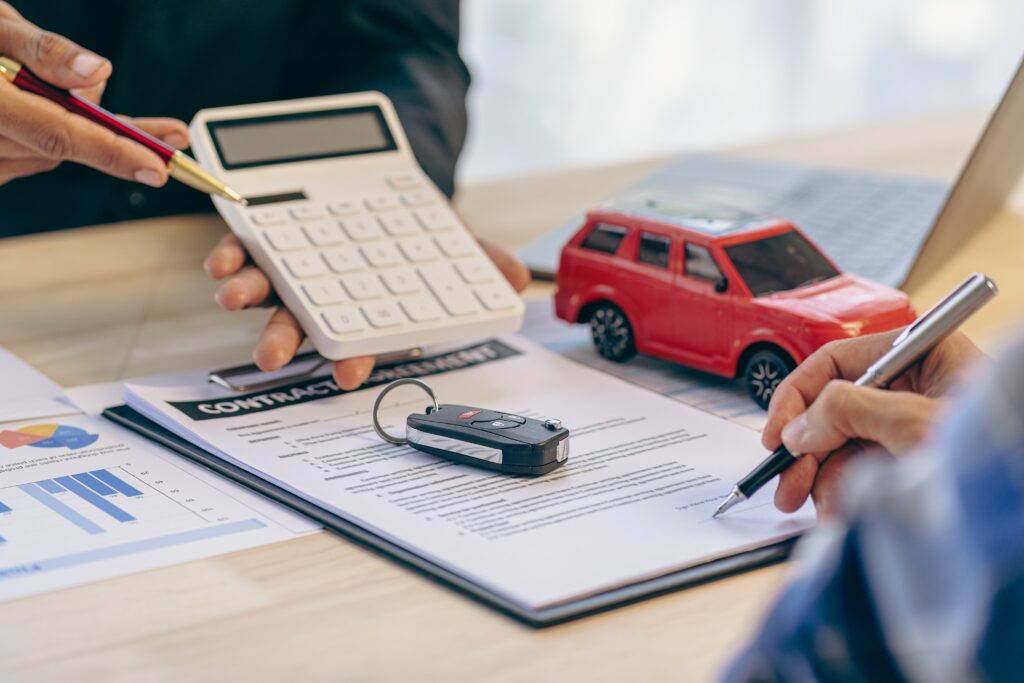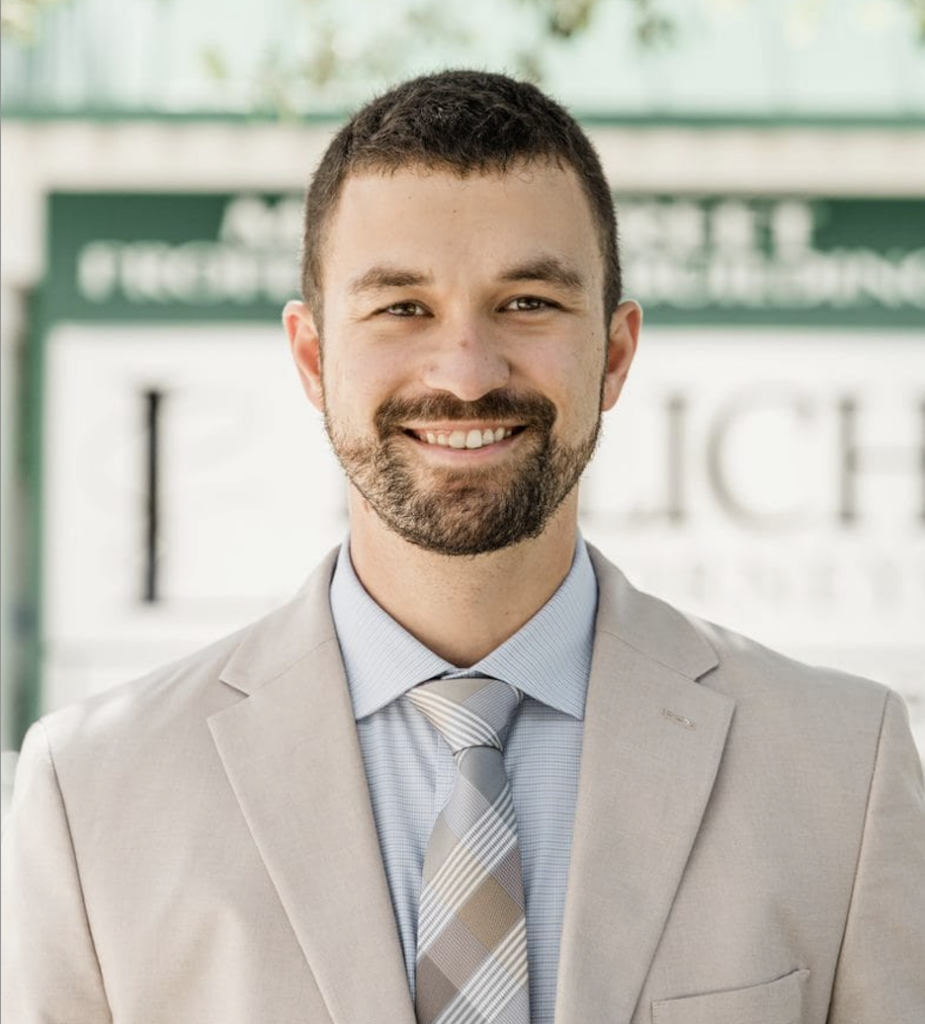When you're the victim in a car accident, you may question what will happen to your car insurance premiums. Should you really face an increased rate due to an accident that is someone else's fault? This article will cover not-at-fault accidents and how a car accident lawyer in Sebastian helps you to ensure that the blame doesn't wrongly shift onto you.
What Is a Not-At-Fault Accident?
A not-at-fault accident is an accident where you are not to blame. Someone else's negligence, distraction, or plain recklessness caused the accident, placing you in the unfortunate position of the victim.
Schedule A Consultation Today!
Why Insurance Matters in Not-At-Fault Accidents

When involved in a car accident where you are clearly not at fault, the logical assumption is that your insurance premiums should remain the same. But, as we dive deeper into the insurance industry, this scenario gets a bit more complicated.
At the core of any insurance policy is a simple principle: coverage in exchange for premiums, which are adjusted based on risk. Now, after an accident in which you were not at fault, the risk you present to the insurance company hasn't inherently increased, and your premiums should remain unchanged in a just and ideal system. After all, you were the victim, not the cause.
Odd as it might seem, some insurance data suggests that people involved in not-at-fault accidents can be at a higher risk for future claims. Some insurers might use this data for premium recalculations, whether due to external factors or mere correlation.
Challenging Unjust Premium Increases
If you notice a hike in your premium after a not-at-fault accident, it's not the end of the road.
Begin by having a direct conversation with your insurance provider. Try to understand the reasoning behind the increase and consider formally contesting it through the company's grievance process if it seems directly linked to the accident.
The insurance market is also competitive. If you feel you're being unfairly penalized, get quotes from other providers.
If you believe the hike is unsupported and negotiations with your provider reach a standstill, consider contacting your state's insurance department for guidance or to file a grievance. They have the authority to review insurer practices, provide mediation between the insurer and the consumer, and, in some cases, impose penalties or mandate corrective actions if the insurance company has violated state regulations.
The Value of Legal Representation
With insurance legalese, potential disputes, and the stress of recovery, having an experienced lawyer can tilt the scales in your favor.
Here's how a lawyer can benefit your case:
- Experience with similar cases: Lawyers, especially those who handle auto accidents, come with experience. They've likely handled cases similar to yours and know the potential pitfalls and most effective strategies.
- Challenging the system: A lawyer knows the system's intricacies, ensuring that insurance companies don't exploit loopholes or use tactics that might not represent your interests.
- Negotiation skills: Settlements for most of these cases occur outside of court. A good lawyer has the negotiation skills to secure favorable terms and maximize your settlement.
Contingency Fee Basis – Aligned Interests, Minimal Risk

The cost is one of the victims' most significant concerns when considering legal representation.
Here's how the contingency fee structure used by most car accident attorneys benefits you:
- No upfront costs: With contingency fees, you do not have to pay retainer fees or hourly charges. The lawyer's payment is contingent upon your success.
- Motivated representation: Since the outcome of your case directly affects your lawyer's compensation, the contingency fee motivates them to get the best possible result. In essence, they win when you win.
- Financial relief: This fee structure offers victims, who might already feel overwhelmed by medical bills and repair costs, a break from further financial strain.
Beyond the financial aspects, a lawyer offers guidance, moral support, and the assurance that someone is looking out for your best interests. They can simplify the process, keep you informed, and alleviate the stress of legal proceedings, allowing you to focus on healing and recovery.
How to Deal with Medical Bills and Health Insurance
After a not-at-fault accident, victims must manage medical bills. Understanding how health insurance and car insurance policies interact can provide clarity and ensure you will not face unexpected bills.
The Primary Payer Conundrum
After an accident, the immediate question arises: Who pays the medical bills? Ideally, the at-fault driver's car insurance should cover your medical expenses. However, medical providers often want payments sooner than the at-fault driver can settle the claim.
Your health insurance might provide an interim solution, covering initial medical expenses, but they expect reimbursement after the finalization and payout of the car insurance claim.
Subrogation – The Reimbursement Process
Once the at-fault driver's car insurance pays out, your health insurance company will often seek reimbursement for what they spent on your medical care. This process, known as subrogation, ensures that the correct parties bear the financial responsibility.
Potential Pitfalls to Avoid
After a not-at-fault accident, you'd expect a straightforward path to medical recovery. However, the intersection of health insurance, auto insurance, and medical care can sometimes create challenges. Here's a deeper dive into some potential pitfalls you might run into and ways to steer clear of them.
Uncoordinated Benefits
Both health and auto insurance policies might touch on accident-related injuries, and a lawyer can explain how your policies interact.
For instance, some health insurance policies might have a coordination of benefits clause, meaning they'll only cover medical bills after your auto insurance pays its share. If you don’t know this, you might find yourself caught in a back-and-forth between the two, with each expecting the other to pay.
Out-of-Pocket Costs
The initial relief at seeing your health insurance step in can quickly fade when you start receiving bills for co-pays, deductibles, and treatments that fall outside your policy's coverage
Before agreeing to any treatment, you must understand these out-of-pocket expenses. This way, you can make informed decisions and discuss payment plans or alternatives if necessary.
Delayed Treatments
Even if you feel relatively okay, seek medical attention soon after the incident because a delay can have two significant drawbacks.
First, some injuries, especially trauma-related ones, might not manifest with immediate symptoms. The sooner you get checked, the sooner a medical professional can identify any issues.
Second, from an insurance perspective, waiting too long can raise red flags. The insurance company might question whether the injuries were genuinely a result of the accident or stemmed from another incident or condition.
Understanding your insurance coverages and timely medical responses can ensure you receive the necessary care without complications.
Car Repairs and Rentals

Following a not-at-fault accident, managing the logistics of car repairs and securing a rental often involves dealing with multiple parties, from repair shops to insurance companies. Let's break down the steps so you better understand what challenges to expect.
Car Repairs - Who Foots the Bill?
The primary responsibility for car repair costs lies with the at-fault driver's insurance. Once they have been found liable, their insurance should cover the repair costs or, if the vehicle is totaled, provide a payout equivalent to the car's market value pre-accident.
Steps to Seamless Repairs
Before any repair begins, you'll likely need to obtain an estimate. Some insurance companies have preferred providers or repair shops they work with, but you generally have the right to choose your repair shop.
From damages to conversations with insurance representatives, document everything. Photos of the damage can help.
Some repair shops might bill the insurance company directly, while others might require you to pay upfront and seek reimbursement from the insurance company.
Handling Rental Cars
If your car is in the shop for repairs, you'll need an alternative means of transportation.
Here's how insurance plays a role:
- Rental coverage: The at-fault party's insurance should provide a rental car or reimburse you for the rental costs. However, your policy might cap the daily amount or total payout.
- Duration of rental: Typically, you may receive a rental for the entire time your car is in the shop or until the at-fault party's insurance company finalizes a payout for a totaled vehicle.
Why the At-Fault Party's Insurance Needs to Cover These Costs
Car repairs and rentals can cost a lot of money, so having the at-fault party's insurance cover these expenses ensures that someone else's mistake will not cause you financial burden.
Also, when the at-fault driver's insurance cooperates, the process is often smoother, with fewer hiccups and delays.
By not claiming from your insurance, you can also maintain any no-claim bonuses or discounts you might have accumulated.
FAQs
Here, we've compiled answers to some of the most frequently asked questions to provide clarity and guidance.
Q: If I'm Not at Fault, Why is My Insurance Company Involved at All?
A: It's standard procedure to notify your insurance company about the accident even if you're not at fault. They can guide you through the claims process, speak with the at-fault driver's insurance company, and, in some cases, might even cover your initial expenses before seeking reimbursement from the other party's insurer.
Q: Will a Not-At-Fault Accident Appear on My Driving Record?
A: While the specifics can vary by state, generally, not-at-fault accidents appear on your driving record but are clearly marked as not your fault. Insurers will review this record when they determine your premium.
Q: What if the At-Fault Driver's Insurance Refuses to Pay?
A: In cases where the at-fault driver's insurance refuses to pay or if they are underinsured, your insurance may cover the damages under Uninsured/Underinsured Motorist coverage if you have it. Seek legal counsel in such situations.
Q: Can I Seek Compensation for Emotional Distress or Trauma?
A: Yes, in many jurisdictions, you can pursue compensation for non-economic damages like pain and suffering, emotional distress, or loss of enjoyment of life. A lawyer can guide the viability of such claims in your case.
Q: How Long Do I Have to File a Claim After a Not-At-Fault Accident?
A: Each state has its statute of limitations for filing claims or lawsuits related to car accidents. Generally, these time frames can range from as short as one year to as long as six years after the accident, but most states have a statute of limitations between two and four years.
For personal injury claims (like if you got hurt in an accident), many states' typical statute of limitations is two or three years. For property damage claims (like damage to your vehicle), it's generally the same, but some states may allow more time.
Q: Should I See a Doctor Even if I Feel Fine After the Accident?
A: Absolutely. Some injuries, like whiplash or internal injuries, may not manifest symptoms immediately. Always get a medical evaluation after an accident to find all underlying issues.
Q: How Can a Lawyer Assist in a Not-At-Fault Accident?
A: A lawyer can help in many ways — from negotiating with insurance companies to ensure you receive a fair settlement to representing you in court if a lawsuit becomes necessary.

Q: If the At-Fault Driver Doesn't Have Insurance, What Are My Options?
A: If an uninsured driver hits you, you may use your insurance policy's Uninsured Motorist coverage. If you don't have this coverage, you may pursue the driver personally through a lawsuit, although you might not collect the damages from someone who lacks the means to pay out of pocket.
Too many people see their rates go up when they were not at fault because they did not have the right legal representation. Protect yourself and your finances by seeking help from a car accident attorney immediately.
